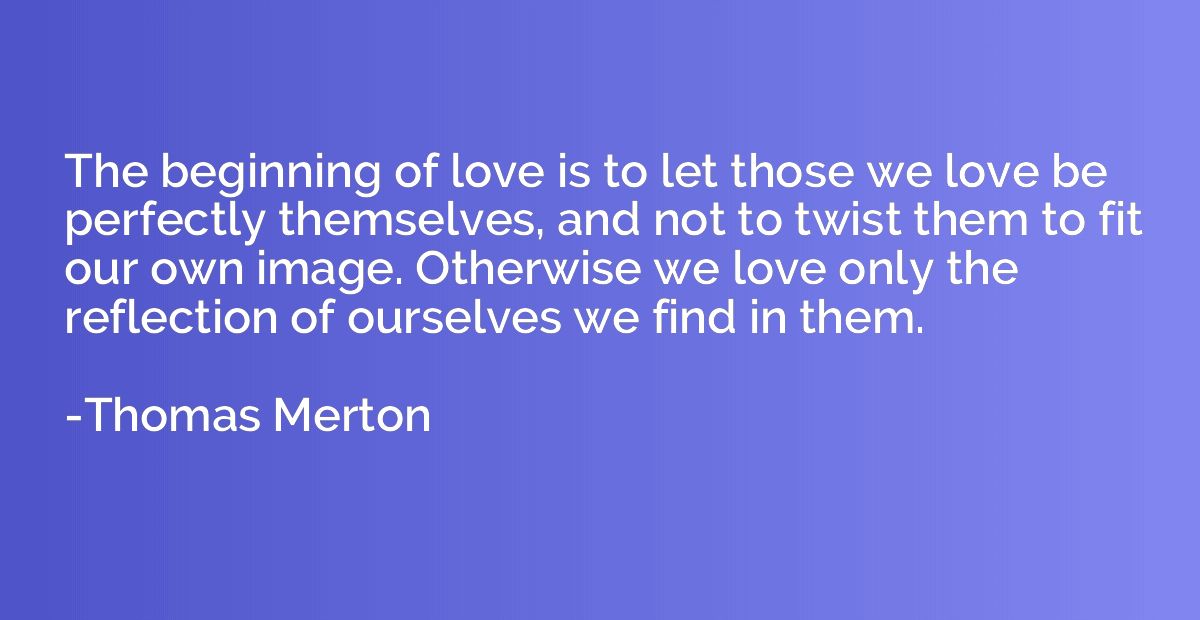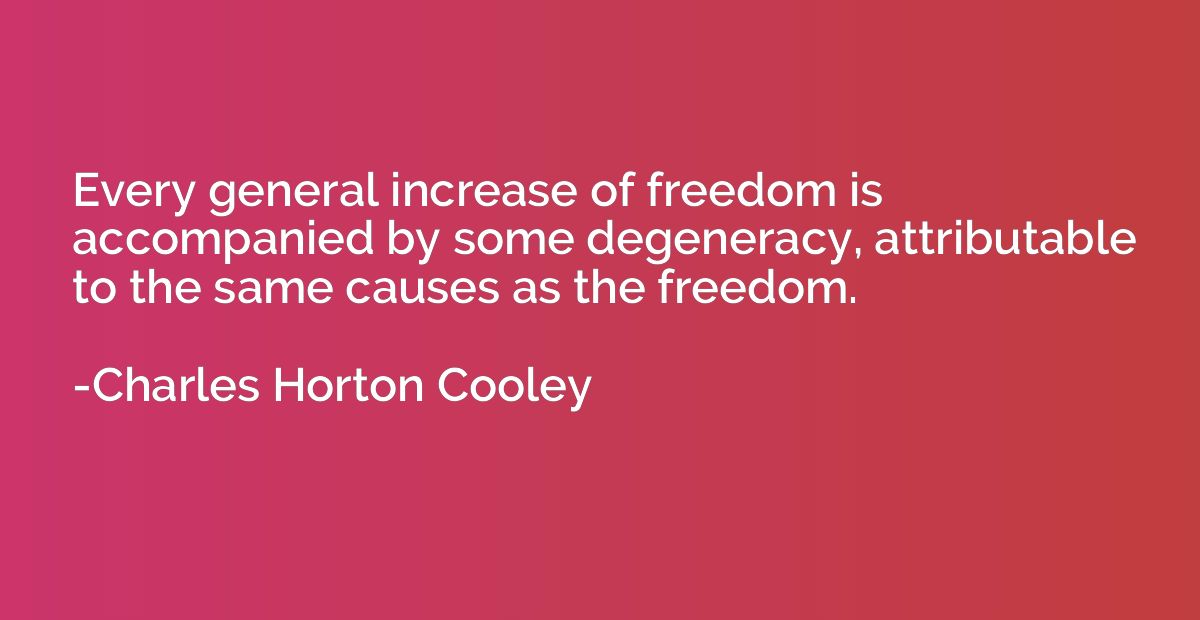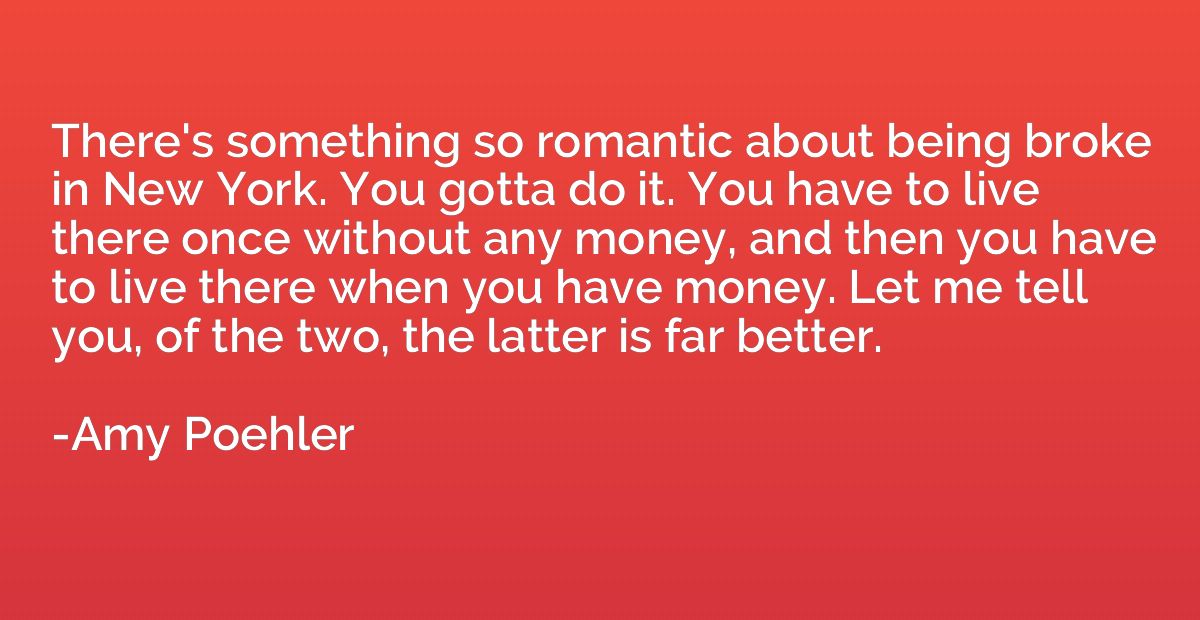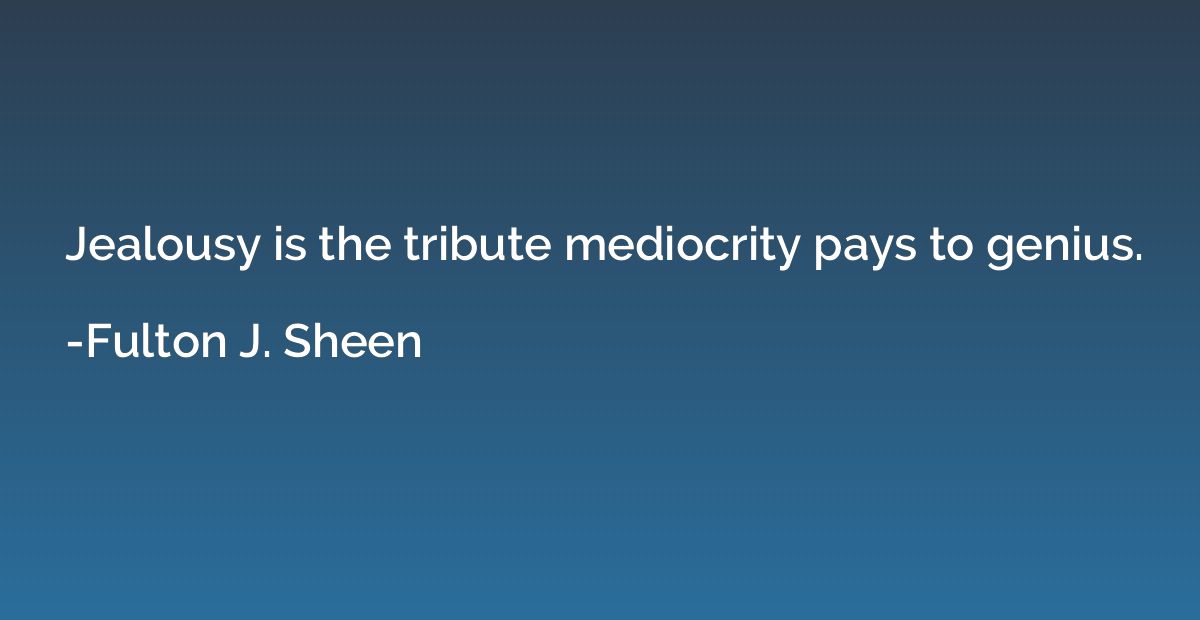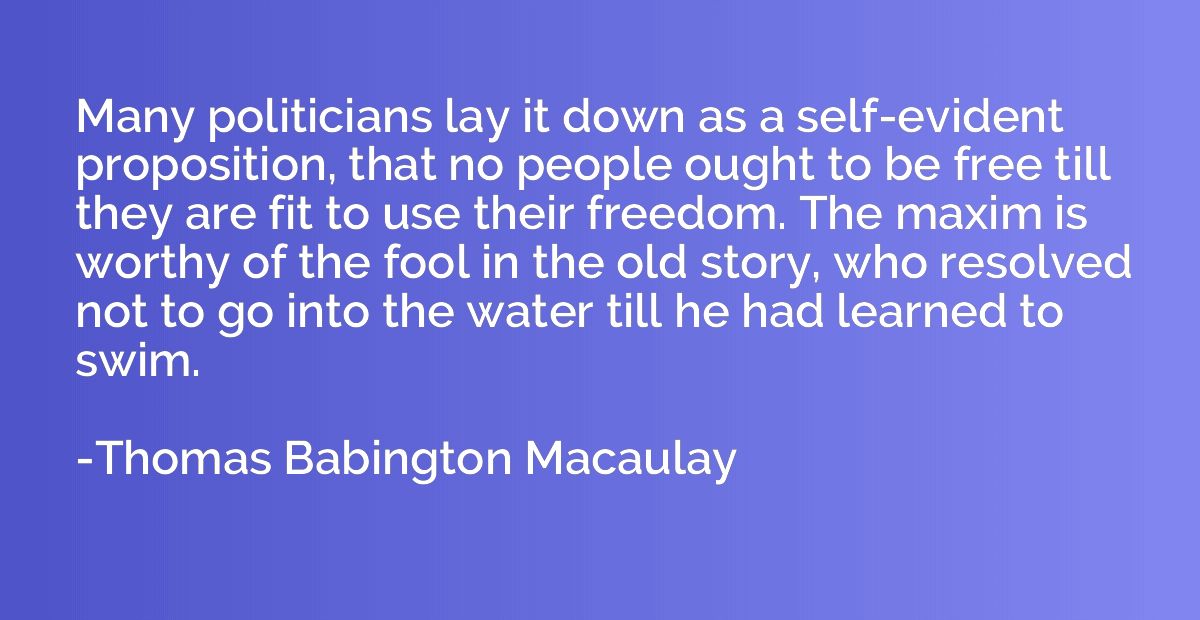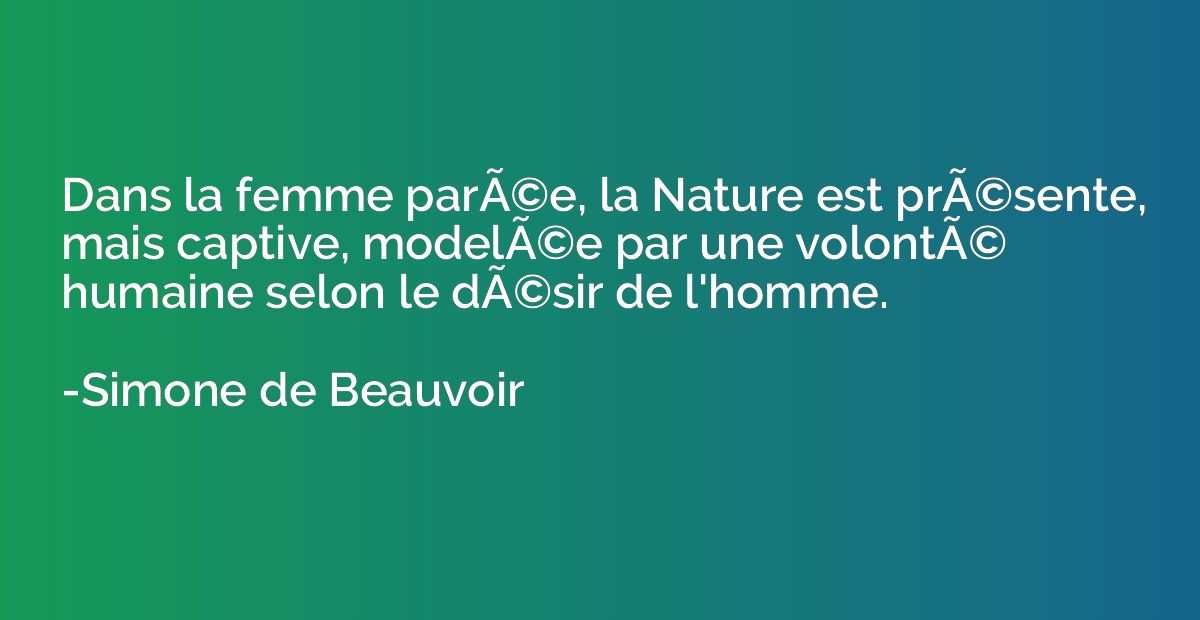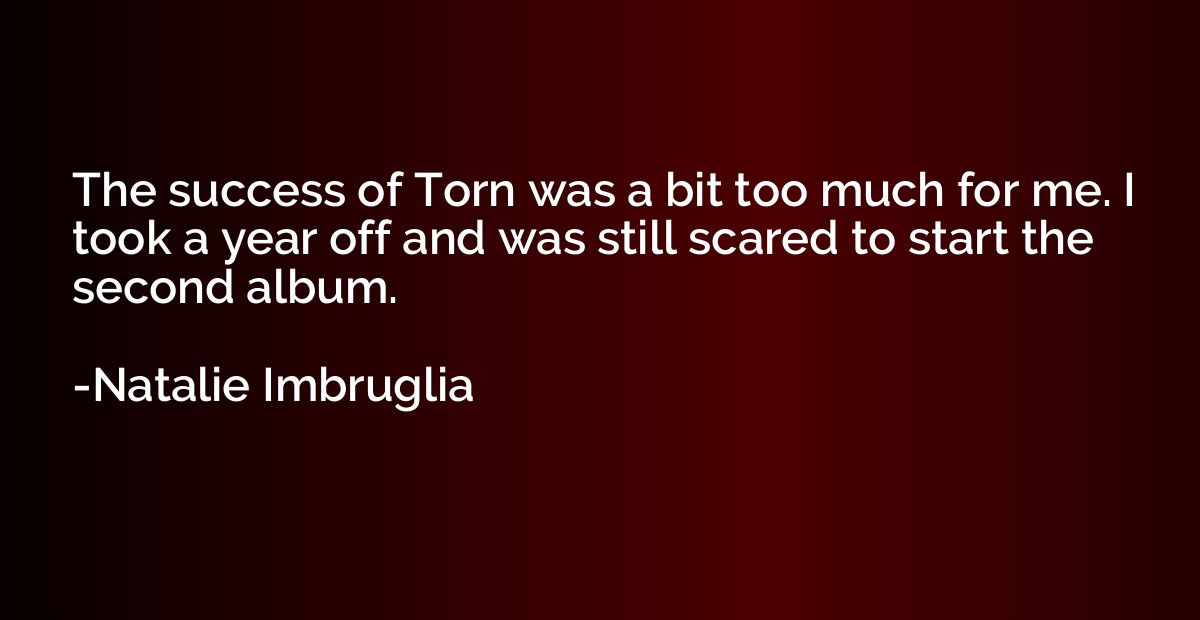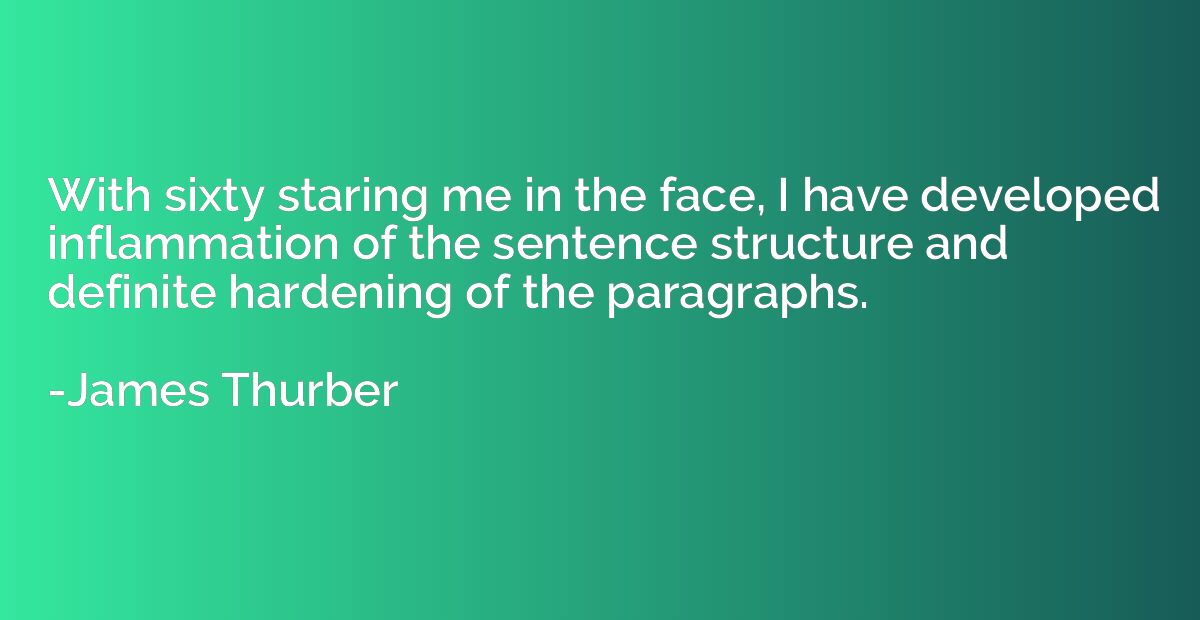Quote by Basil Bunting
I hate science. It denies a man's responsibility for his own deeds, abolishes the brotherhood that springs from God's fatherhood. It is a hectoring, dictating expertise, which makes the least lovable of the Church Fathers seem liberal by contrast. It is far easier for a Hitler or a Stalin to find a mock-scientific excuse for persecution than it was for Dominic to find a mock-Christian one.
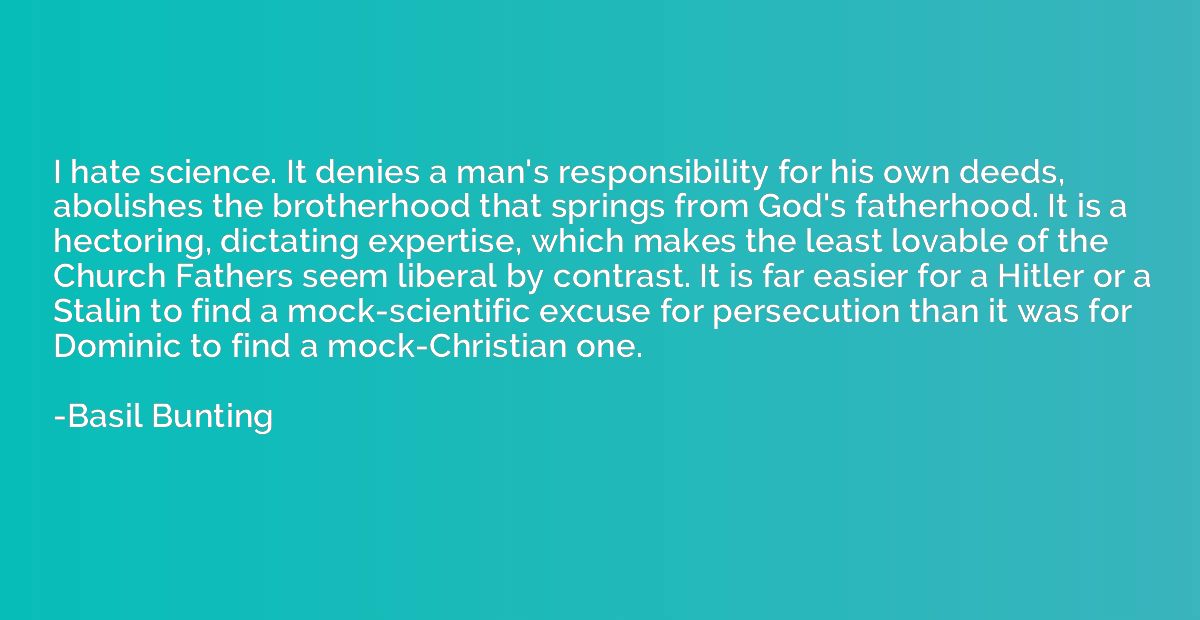
Summary
This quote conveys a strong disdain for science, suggesting that it absolves individuals of their own accountability and eradicates the unity that arises from perceiving humanity as children of God. The quote views science as an authoritative and domineering discipline, making even the less sympathetic figures in religious history appear comparatively tolerant. It argues that it is simpler for individuals like Hitler and Stalin to rationalize acts of oppression using pseudo-scientific justifications than it was for figures like Dominic to justify their actions using pseudo-Christian arguments.



